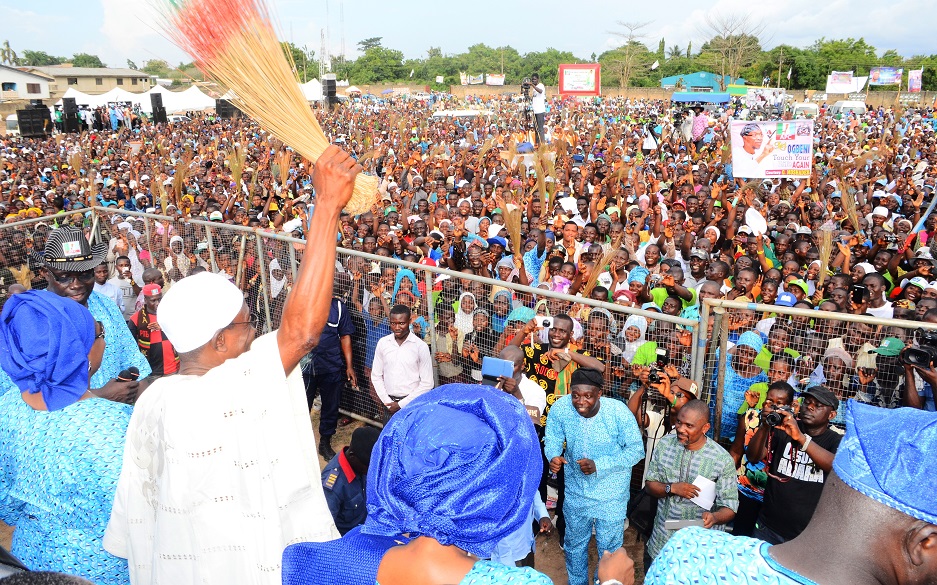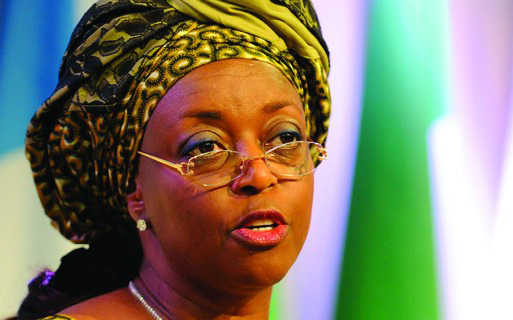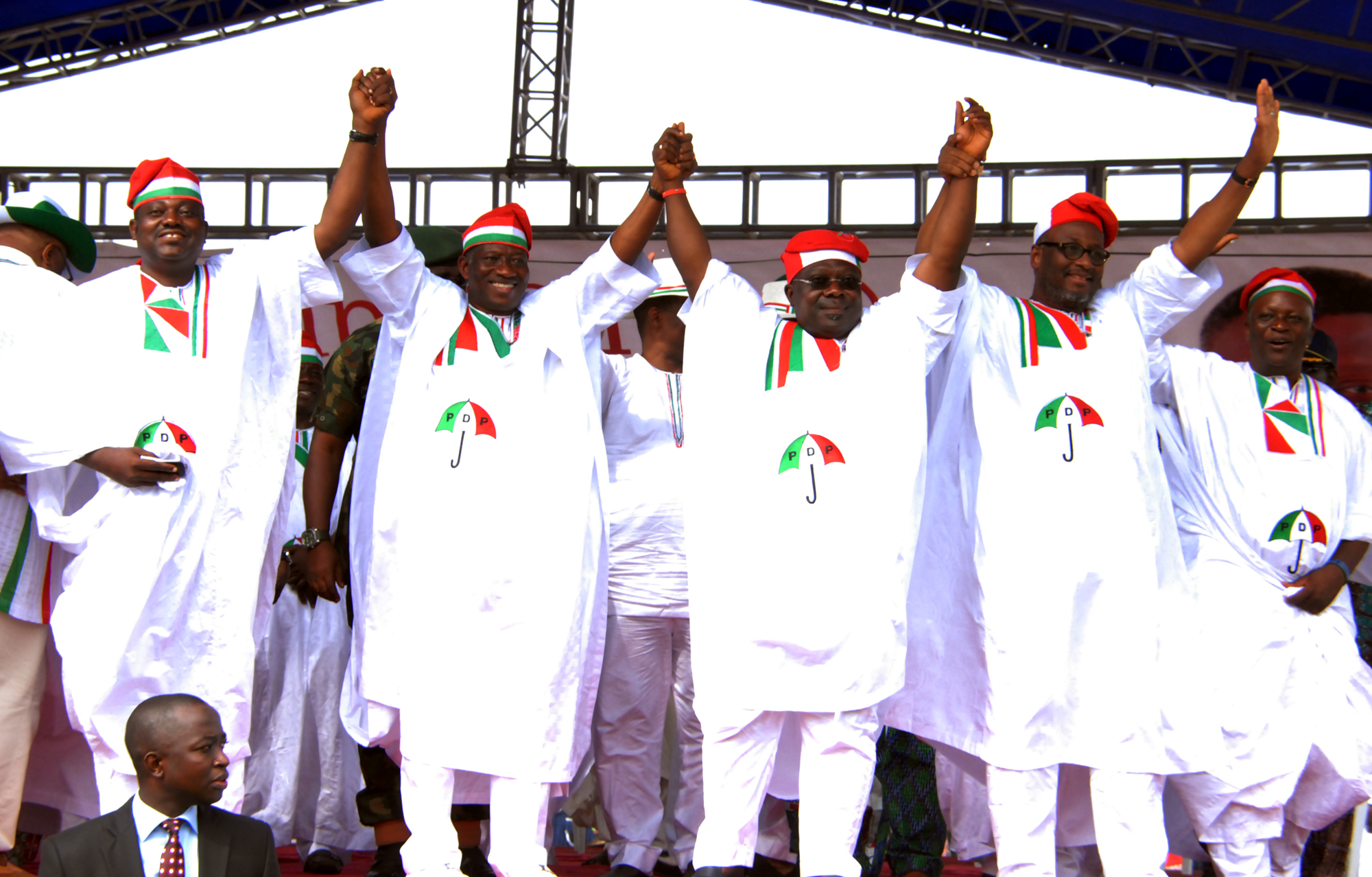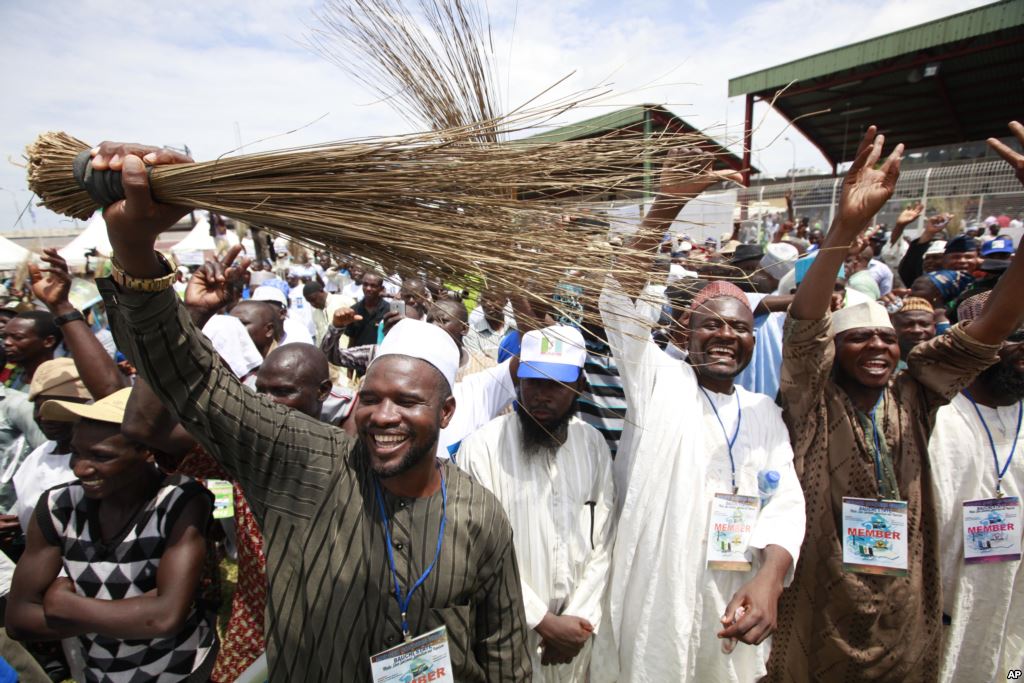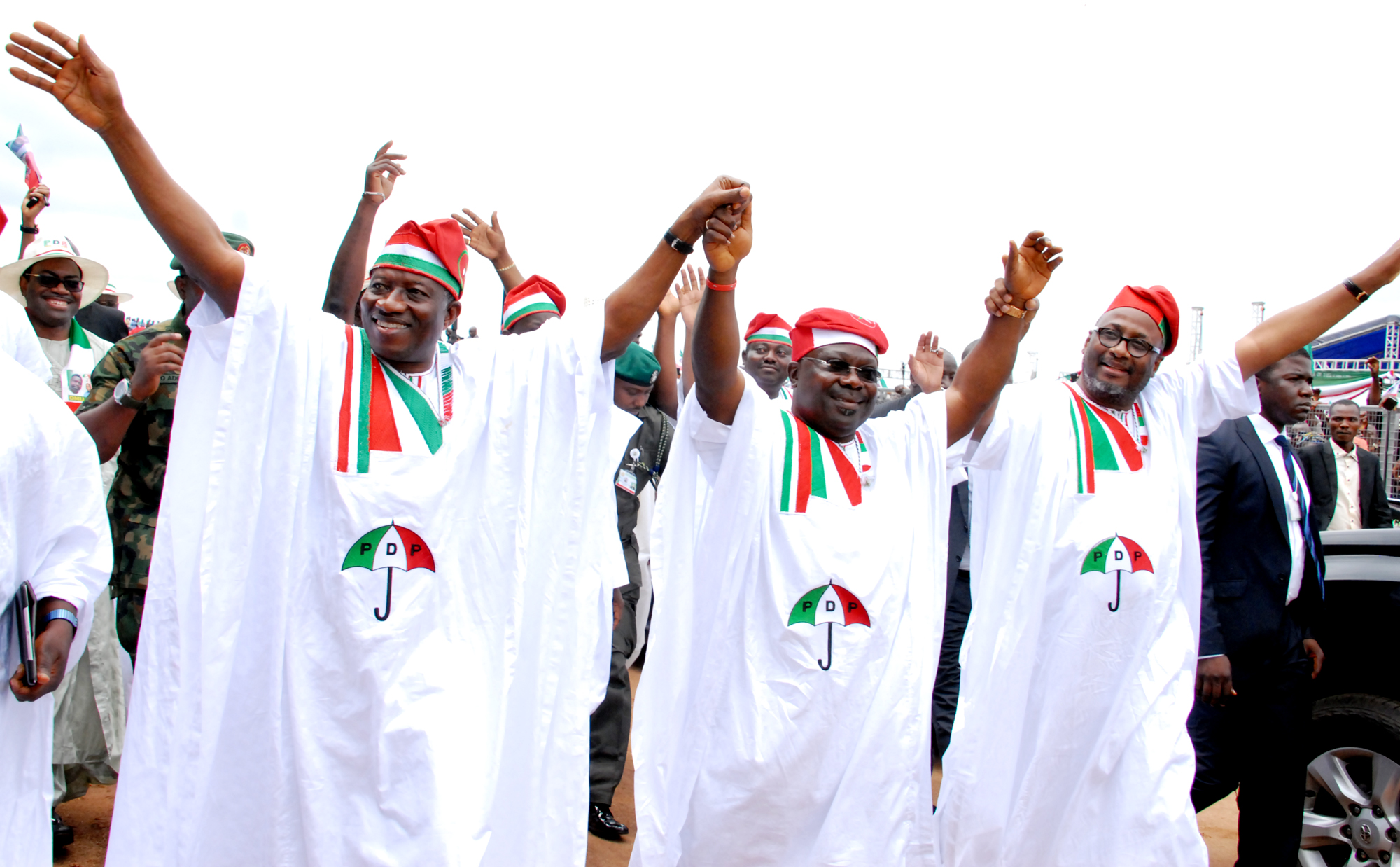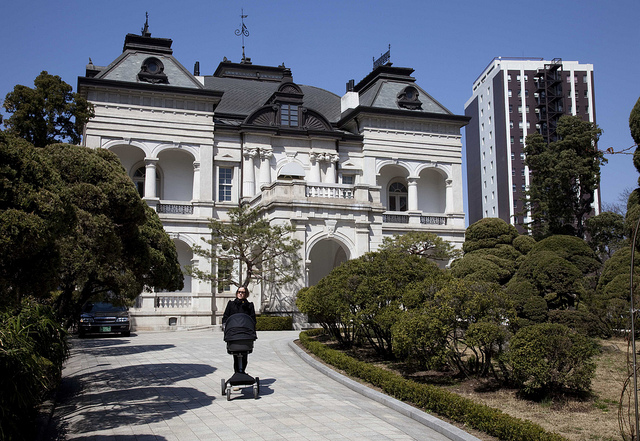The August 9 governorship election in Osun State is a tougher test for the Peoples Democratic Party (PDP) than Ekiti State. Allow me to explain. Ekiti, for all you care, has always been a “swing state” ─ to borrow the American term used for states that are not “safe” for any party. In 1999, we need to recall, Ekiti was the only state in the South-West that produced a PDP senator. When Segun Oni (then PDP) was declared winner of the 2007 governorship election, Ekiti House of Assembly was evenly split between the PDP and the Action Congress (AC, now All Progressives Congress, APC). And maybe we should remember also that the courts played a key role in settling close political battles in the state.
Nevertheless, we were shocked by Mr. Ayo Fayose’s victory over Dr. Kayode Fayemi in the June 21, 2014 poll. We were shocked primarily because we made many weak assumptions. We assumed that the APC was fully in charge of the South-West, minus Ondo State, and Ekiti was just there for the taking. We assumed that since Fayemi was generally acknowledged as having done well, his performance would get him the vital votes. We assumed that put on a scale, Fayemi would always outweigh Fayose on several indices: panache, vision and accomplishments. We were surprised, I mean shocked, by the outcome. But a careful diagnosis of the Ekiti condition would reveal that there was a complex interplay of local dynamics. Analysts should be wiser now.
Osun offers a different proposition altogether. Having won Ekiti, PDP now has the burden of proving that its victory was not a fluke. Many have attributed PDP’s victory to the popularity of Fayose, and not because of PDP. Is Iyiola Omisore the Osun version of Fayose? It does not appear so. That is the first challenge for PDP. The second challenge is: the surprise factor in Ekiti has now put APC on notice ─ to be fully prepared, to go the extra mile, to pull all the stops, to stop at nothing. If APC was complacent in Ekiti, it would not be in Osun. The third challenge, I should think, is that in the media arena, APC has scored bigger points. PDP now has to prove, yet again, that media opinion is irrelevant on election day. APC had the media on June 21 but it counted for nothing at the end of the day.
Interestingly, I have heard a lot of people argue that the Osun poll is key to the re-election bid of President Goodluck Jonathan. If the PDP takes over Osun, the calculation goes, then Jonathan will have a foothold in the South-West and that would be critical in the 2015 elections. Given that Jonathan did not win Osun in 2011, I would not see August 9 as a referendum on his bid. I would also not see this as a major determinant of where the South-West will go in 2015. A victory for the PDP will certainly boost Jonathan’s chances, but I don’t think a loss will damage him beyond repairs. In simpler terms, I would say we should continue to treat August 9 as a governorship, not a presidential, election.
Advertisement
No matter what we say, the Ekiti election has taught Nigerian politicians some lessons. One key lesson is: never take the votes of the people for granted. Don’t assume they will always vote for you. This thing has been on for a while, but we ignored it. In 1999, the Alliance for Democracy (AD, which is essentially the party that transformed to Action Congress, then to ACN and now APC) swept the South-West polls. AD was the party where the mainstream South-West nestled. By 2003, the game had changed, perhaps with President Olusegun Obasanjo (PDP) in power, but AD assumed it would always win. However, we were shocked as PDP won Ekiti, Oyo, Osun, Ogun and Ondo States, leaving only Lagos for AD.
Even though we cried out then that the elections were rigged (I was one of those who believed strongly that PDP rigged massively in the South-West), I would say, with the benefit of hindsight, that maybe the rigging was not as terrible as we thought. Fayose probably genuinely swept out Chief Niyi Adebayo in Ekiti State; Chief Bisi Akande probably lost in Osun because of his long battle with civil servants, especially teachers; Chief Lam Adesina lost in Oyo probably because of poor performance and a falling-out with the power brokers; Chief Adebayo Adefarati was probably outfoxed in Ondo by Chief Segun Agagu; and Chief Segun Osoba lost probably because Obasanjo was too strong for him. I am ready to use “probably” today because I am beginning to view the South-West voters differently ─ after the Ekiti shock. In 2003, I was not that lenient with the PDP.
Ordinarily, the Osun battle between the incumbent governor, APC’s Ogbeni Rauf Aregbesola and Omisore should not be difficult to call. Aregbesola is a very popular politician ─ my kind of politician who is very much in touch with the grassroots. He has come with a lot of governance ideas that have empirically impacted on the state. He is someone with passion and conviction. When he talks, you know he understands what development is all about. When I meet a politician, the first question I try to determine is: does this guy know what he is doing? Aregbesola passes the test. I don’t agree with many of his actions ─ all this “State of Osun” stuff and his handling of religious sentiments in the state ─ but on the balance, I believe he is very competent.
Advertisement
However, I also recognise that it is not going to be a walkover for him. He has made a lot of mistakes going into an election period ─ owing civil servants and pensioners; failing to pay youths engaged under the Youth Empowerment Scheme (YES); owing landlords whose houses were demolished under the urban renewal project; and re-organising schools in a way that has disorganised pupils and their parents. His critics have also accused him of “selling” Osun to Lagos, that the biggest beneficiaries of contracts live in Lagos. But after the Ekiti shocker, Aregbesola has quickly moved to calm tempers. He has cleared salary and pension arrears, and started paying compensation to landlords.
Even though PDP is spending a lot of money, aggressively distributing kerosene and rice ahead of the August 9 poll, Aregbesola still has the edge. Anything else will shock me.
AND FOUR OTHER THINGS…
FEMALE BOMBERS
Advertisement
The war against terror just got tougher. Before our very eyes, Boko Haram has grown and blossomed ─ and we don’t have the foggiest idea of how to stop these chaps. The more breakthroughs we announce in this particularly complex war, the deadlier the sect gets. From being a mere group of religious zealots who could only throw stones at the police, they started using machetes and colonial-era guns. They graduated to hand-thrown explosives. They have moved up to suicide-bombing, and it is now getting more complex with female bombers. And now they are strapping explosives to 10-year-olds. Crazy.
UNKNOWN SOLDIERS
I’ll forever find it difficult to believe the Nigerian military. Recently, when soldiers went berserk in Lagos and started burning buses over the death of a colleague, the military shamelessly blamed street urchins for the arson. This was something people recorded with their camera phones. That is why the military version of the Zaria killings is suspicious. How can three sons of Shiite leader, Sheikh Ibraheem El Zakzaky, die just like that? Co-incidence? I don’t think so. We may not be El Zakzaky’s followers, but we should not think we’re safe in a country where people can be so killed extra-judicially. Frightening.
ACCESSING HEALTH
Advertisement
Executive Secretary of the National Health Insurance Scheme (NHIS), Dr. ‘Femi Thomas, has set a target of 40% universal coverage of Nigerians on social health insurance by 2015. Tall order, since it is currently less than 10%! Thankfully, he’s employing creative advocacy tools to bring more Nigerians into this safety net, part of which is a TV talkshow, Health Access, aired on NTA International on Saturdays at 7.30pm. The audience-participatory talkshow, anchored by Akin Fadeyi and co-anchored by ace comedian, Gbenga Adeyinka, provides a lot of insight into the scheme. Former health minister, Prof. Eyitayo Lambo, who midwifed NHIS in 2005, has featured in it. Commendable.
TAKE HEART, MALAM
Advertisement
To lose a beloved daughter is bound to be traumatic, but to lose another child barely a couple of years later must be something else. My sympathy goes to former minister of Federal Capital Territory (FCT), Malam Nasir el-Rufai, over the tragic death of his son in a car accident in Abuja on Tuesday. It is a thing of courage that it was el-Rufai himself that announced the death via facebook. The young man, Hamza, was said to have overstayed at a friend’s place and was rushing back home late night when the tragedy happened. Such a promising youngster. Condolences.
Advertisement
Add a comment

